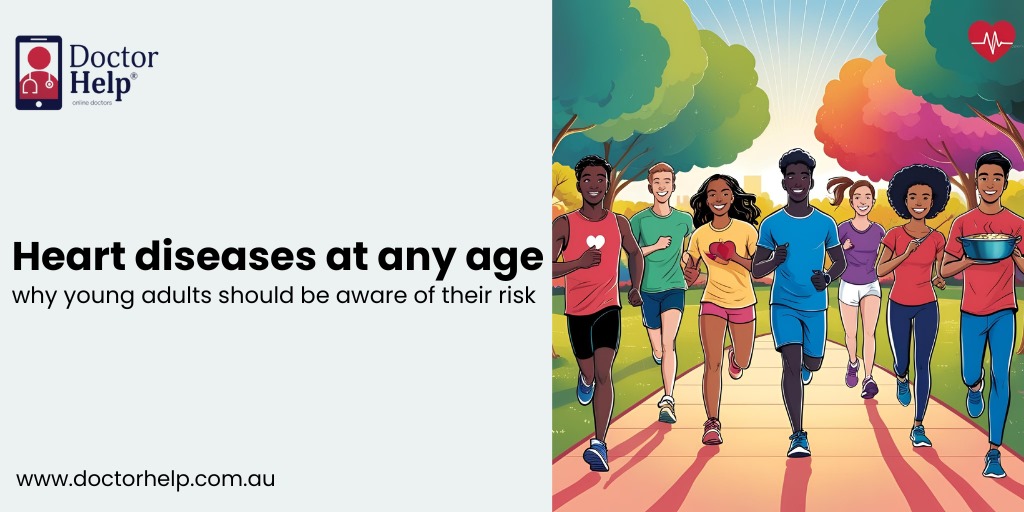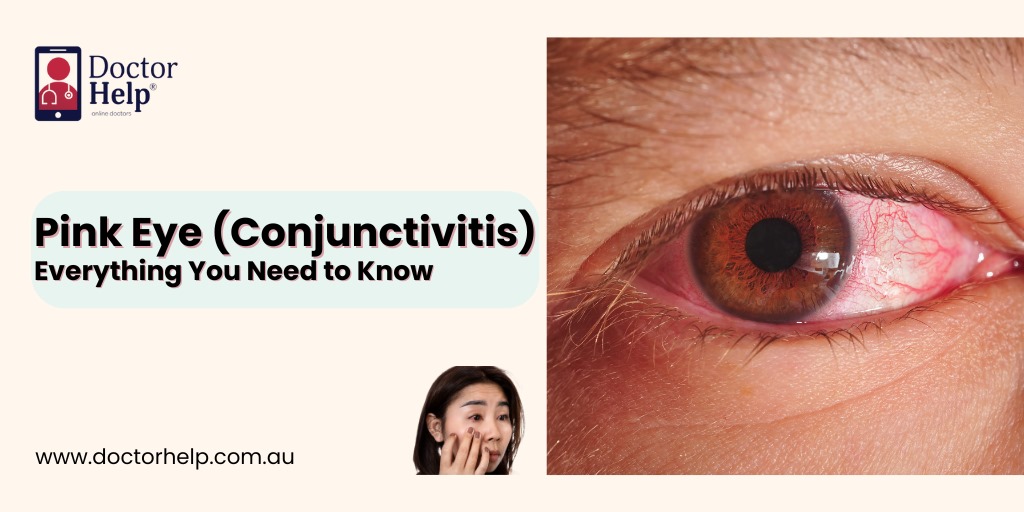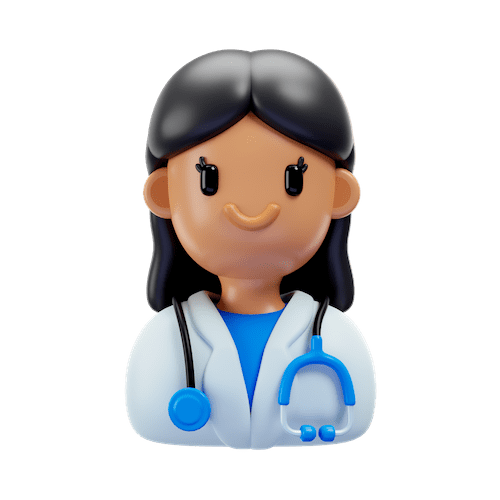Table of Contents
While it is true heart diseases are more common in older people, they can happen at any age. There is no specific age for heart disease. Recent statistics have shown that young adults are increasingly at risk. According to the Australian Institute of Health and Welfare, in 2022, 6.7% of the adult population aged 18 and over had a heart, stroke, or vascular disease.
According to the Australian Statistics Bureau, in 2023, the leading cause of death among Australian men and women was Ischaemic heart disease, also known as heart attack.
There is no single specific cause of heart disease; however, many factors can increase its risk, such as medical conditions, lifestyle choices, genetics, age, sex, and ethnicity.
In this blog, we will discuss the risk factors for heart disease at any age and the best lifestyle changes to prevent heart disease early.
Understanding the heart and cardiovascular diseases
Cardiovascular diseases include all diseases related to the heart and blood vessels. Heart diseases affect the normal functioning of the heart. In Australia, a person dies due to heart disease every 18 minutes, and heart disease is responsible for almost one in five deaths in Australia- 17.1% of all deaths- with more males dying of heart disease than females each year. There are many types of heart diseases.
- Congenital heart diseases: These include the heart conditions you are born with, like a hole in the heart.
- Coronary heart diseases: These occur when fat deposits in the walls of the blood vessels, resulting in the narrowing of the artery walls. It can lead to a heart attack or stroke.
- The disease of the heart muscle is known as cardiomyopathy.
- Arrhythmias: A condition in which there is a problem with heart rhythms (irregular heartbeats).
- Heart valve disease: This occurs when the valves are damaged. If a valve becomes narrowed, this condition is called stenosis, and regurgitation occurs when the valve allows the blood to flow in the backward direction.
Young adults and heart health
Can young adults get heart disease? The answer is yes -heart disease can happen at any age. Although age is one of the risk factors, many young adults have one or more preventable cardiovascular risk factors, increasing the risk of developing cardiovascular disease later in life; that is why young adults should care about heart disease.
Ignorance is not always bliss; sometimes it can harm you beyond your thinking. Many young adults are not aware of the cardiovascular risk factors. Research has found only 33% of Australian adults aged 18–34 identified hypertension as a cardiovascular risk factor; 27% identified obesity, 39% identified physical activity, 49% identified stress, and 55% identified diet and smoking.
The ABS reported in 2023 that 92.3% of adults aged 18–44 years with high blood pressure do not report being hypertensive.
Many young Australians lack cardiovascular awareness about their heart health due to limited engagement with the healthcare system. Many young adults lack a regular GP, making them less likely to get screened. Other barriers between the healthcare system and young adults include factors like negative experiences, social stigma, low confidence, confidentiality concerns, and trust issues.
Risk factors for heart disease at any age
The risk factors of heart disease are categorized further into categories;
- Preventable.
- Non-preventable.
Modifiable risk factors
As the name suggests, these risk factors are modifiable, which means they can be prevented through lifestyle changes and medical intervention;
Lifestyle risk factors
- Diet: Eating an unhealthy diet that includes processed food, sugar, high fats, and salt will eventually cause heart diseases like atherosclerosis.
- Smoking: It can cause heart attack and atherosclerosis as it damages the heart and blood vessels. Research has shown that long-term exposure to passive smoking ( when a non-smoker inhales smoke exhaled by a smoker) can increase 25 to 30% risk of developing heart disease.
- High alcohol consumption: Excessive drinking can cause high blood pressure and increase fatty substances in the blood.
- Physical inactivity: Approximately three-quarters of people aged 18 and over do not meet the physical activity guidelines. Physical inactivity can cause heart diseases and can also increase the chances of other risk factors like obesity, high blood pressure, diabetes, and high cholesterol.
- Unhealthy weight: According to the statistics, one-fourth of children in Australia are overweight, and two-thirds of adults are obese. Obesity not only causes heart disease but also increases the chances of other risk factors as well.
Medical conditions
- High blood pressure: Persistent high blood pressure overloads the arteries and increases the chances of heart failure, heart attack, and stroke.
- Diabetes: It causes sugar to build up in the blood and increases the risk of heart attacks and stroke by up to four times.
- High cholesterol: Plaque accumulation in arteries due to elevated levels of bad cholesterol can result in heart attack and stroke.
- Mental health: Studies have shown that mental health conditions like depression and stress are major risk factors for heart disease, stroke, and high blood pressure.
Non-modifiable risk factors
Non-modifiable factors are risk factors that can not be controlled. They include;
Genetics and family history: Yes, your family history plays a crucial role. If you inherit a gene that can cause heart disease or any risk factors, then you are highly likely to develop that condition.
Age: As you grow old, your heart and blood vessels change, which can lead to many heart diseases. Age is one of the risk factors, but heart disease can happen at any age.
Sex: Although both men and women share the same risk factors, there are some female-specific risk factors like pregnancy complications, hormonal changes, menopause, and early menopause.
Race and ethnicity: Heart diseases can also be affected based on ethnic groups. Different ethnic groups have different chances of developing heart disease.
Heart disease prevention for young adults
One of the major causes of heart disease in young adults is lifestyle choices. To prevent the risk of heart disease at a young age, follow the below-mentioned strategies.
- By staying physically active, you can decrease the risk of developing heart disease, hypertension, high cholesterol, and obesity. Try to get at least 2.5 hours of physical activity per week.
- Start a heart-healthy diet by eating less from the box (e.g. processed foods which are often high in saturated fats, salt, and sugar) and increasing whole, nutrient-rich foods nutrient-rich foods (such as fruits, vegetables, leafy greens, and whole grains) to lower your risk of heart disease at a young age. Additionally, incorporate lean protein into your diet.
- If you smoke, then quit smoking, as quitting will decrease your chance of developing heart disease later in life.
- Manage your stress by practicing meditation and yoga. It will help in lowering the risk of heart disease.
- Improve your sleep cycle and get at least 7 to 8 hours daily.
- See your healthcare provider regularly so that early diagnosis of any risk factor is possible. You can consult with a GP via telehealth to discuss your heart health and risk factors.
References:
- Heart Health and Aging. (n.d.). Heart Health,
https://www.nia.nih.gov/health/heart-health/heart-health-and-aging - Heart disease risk factors. (2024, December 2). Heart Disease.
https://www.cdc.gov/heart-disease/risk-factors/index.html - Ptruong. (2025, February 6). What is diabetes | Diabetes Australia | Diabetes Australia. Diabetes Australia.
https://www.diabetesaustralia.com.au/about-diabetes/what-is-diabetes/ - Prevention of cardiovascular disease in young Adults: Focus on gender differences. A collaborative review from the EAS Young Fellows. (2023). Atherosclerosis,
https://www.sciencedirect.com/science/article/pii/S0021915023051936 - Improving awareness of cardiovascular risk factors in young Australian adults. (2024, July). Australian Journal of General Practice.
https://www1.racgp.org.au/ajgp/2024/july/improving-awareness-of-cardiovascular-risk-factors - Victor Chang Cardiac Research Institute. (n.d.). Heart & cardiovascular disease – Symptoms & types – Victor Chang Cardiac Research Institute. The Victor Chang Cardiac Research Institute.
https://www.victorchang.edu.au/heart-disease#:~:text=What’s%20the%20difference%20between%20heart,cardiovascular%20diseases%20are%20heart%20conditions - Physical activity, 2022. (n.d.). Australian Bureau of Statistics.
https://www.abs.gov.au/statistics/health/health-conditions-and-risks/physical-activity/latest-release#key-statistics - Waist circumference and BMI, 2022. (n.d.). Australian Bureau of Statistics.
https://www.abs.gov.au/statistics/health/health-conditions-and-risks/waist-circumference-and-bmi/latest-release - Department of Health & Human Services. (n.d.). Heart disease – know your risk. Better Health Channel.
https://www.betterhealth.vic.gov.au/health/conditionsandtreatments/heart-disease-risk-factors - Key statistics: Heart disease | Heart Foundation. (n.d.).
https://www.heartfoundation.org.au/your-heart/evidence-and-statistics/australia-heart-disease-statistics











